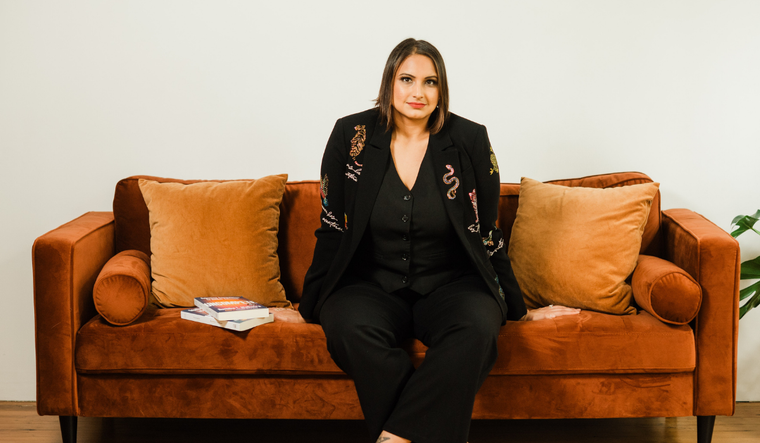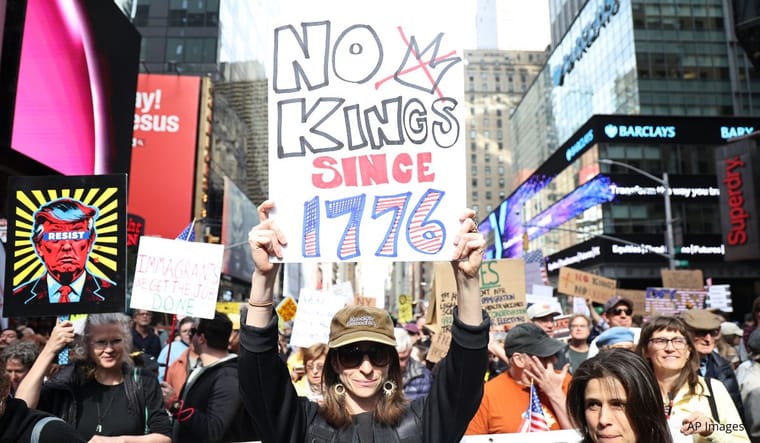Most Women Underestimate Their Risk of Breast Cancer. Here’s Dr. Lisa Larkin on What Everyone Needs to Know
Like many women, Lisa Larkin, MD, started getting screened for breast cancer at age 40. She didn’t have a family history of the disease, and assumed the recommended annual mammograms would suffice.
Yet despite staying on top of that yearly imaging, Dr. Larkin felt a lump in her breast just before her 50th birthday—and she knew it was something she shouldn’t ignore.
It was a good thing she didn’t: Dr. Larkin soon learned she had breast cancer.
Looking back now, the board-certified internist and women’s health specialist says she had underestimated her risk of getting breast cancer. Like 40 percent of all women, Dr. Larkin had dense breasts, which make it tougher for mammograms to find tumors. She also says none of her doctors assessed her risk of breast cancer—something she’s on a mission to change.
“Our messaging about breast cancer has been fundamentally wrong for decades now,” Dr. Larkin told The Sunday Paper. “We just tell women to get their annual mammogram, which women are pretty good at doing. But then they think that’s all they should be doing. We don’t talk to women about how to understand their own individual risk of breast cancer and the specific things they can be doing to minimize that risk.”
It's time to change that, and each of us can play a role by understanding the facts and sharing them with the women in our lives. Here, Dr. Larkin shares what all of us need to know.
To watch Maria talk to Dr. Larkin, Dr. Sharon Malone, and Dr. Stephanie Faubion about the state of women’s health right now, sign up here!
A CONVERSATION WITH DR. LISA LARKIN
What needs to change in the conversation all of us are having about breast cancer?
Let’s start with the basics: Your annual mammogram does not prevent breast cancer. Mammograms detect breast cancer that’s already there. We need to be talking to women about how to identify who is at elevated risk, and more women need to realize that while family history is important, it is not the only factor. More than 70 percent of women who’ve had breast cancer—including me—have absolutely no family history. There is not enough messaging about the importance of identifying women who are at high risk, and how to do that.
Sadly, we are not training and educating doctors about doing this kind of risk assessment. There are models out there where you can calculate your risk. They aren’t perfect. But they help us stratify whether you’re at low, average, or high risk.
What are these risk assessments, and do you recommend we do them on our own and then talk to our health care providers about the results?
Yes, there are two I recommend that are a great starting point for estimating your risk:
The Gale Model is easier and faster to complete—it’s just five questions. But it only takes into consideration one generation of family history, and it doesn’t consider reproductive factors or breast density, which are so important.
The Tyrer-Cusick Model may give you a higher risk score, depending on your breast density, and it takes three generations of family history into consideration.
The scores you get when taking these risk assessments are great starting points, but the best thing to do is to go over your results with a physician.
Breast density has been in the news a lot recently, but there’s still a lot of confusion about what this is, how it impacts our risk of breast cancer, and what we should do with that information. Can you help clarify?
Finally, the messaging is out there about breast density being associated with breast cancer risk. But now women are getting these letters after their mammograms that say, “Your breast density is high, you might benefit from enhanced screening.” Then, they take these letters to the doctor, and the doctor says, “You don't need that,” or “Your insurance won't cover that.” There's no mechanism now for helping a woman understand her breast density and what it means.
There are four categories of breast density: extremely dense, heterogeneously dense, scattered glandular density, or replaced by fat. To find out your breast density, read your mammography report. Your physician won’t be able to know what your breast density is by a physical exam; breast density is a scoring by the radiologist who reads your mammography imaging. Sometimes, your score might be on the fence between two categories, so over the course of a few years you might see one report that says you have extremely dense breast tissue and another report that says you have heterogeneously dense breast tissue. Most of the time, breast density stays consistent until a woman goes through menopause, at which point breast density goes down one category.
Dense tissue does put you at increased risk of breast cancer, and it also makes breast cancer more difficult to detect with mammogram alone. If you have dense breasts, talk to your physician to make a shared decision about the right screening plan for you.
This week, you’ll have a conversation with Maria and two other physicians about the state of women’s health right now. You’ve been vocal about how we are neglecting women’s health in mid-life. Tell us more…
There's lack of interest in midlife women's health because of long standing gender bias. There’s also fragmentation in our healthcare delivery models. And then there's really the reality of what happens to women during this time: You go from your reproductive years where you have great points of contact with your OB-GYN. Then you turn 40, you’re done having babies, your Pap smear only needs to be done every three years, you're getting your annual mammogram—and you're busy with your career, with your kids, with life. So, you don't go to the doctor very much because—if you’re lucky and you feel pretty good—you don't need to.
That is until you’re 60 or 65 and have health problems like hypertension, high cholesterol, or maybe even diabetes. There’s literally 20 to 25 years where women have very few points of contact with the health system. And the problem is that if I am going to help you live a long, healthy life well into your 90s, I need to take care of you when you're 40. That’s when lifestyle interventions can have the biggest magnitude of impact. If you are 42 and I can identify that you are at very high risk of developing breast cancer, I can recommend you do things at 42 or 45 or 48 to prevent you from developing breast cancer. That’s where it really matters. And that's where women fall through the cracks.
What do we do about this?
Education is where we start. Even if you feel well at this point, establish a relationship with a physician. Educate yourself about the lifestyle habits that really can prevent disease. Feel empowered to ask the right questions and keep searching until you find a doctor who feels like a true partner.
Dr. Lisa Larkin is a board-certified internist practicing internal medicine and women’s health. She is the Founder and CEO of Ms. Medicine, a national membership organization for women’s health clinicians and a concierge women’s health primary care network. She is also owner and President of Lisa Larkin, MD, and Associates, an independent, multispecialty practice offering direct primary care (DPC), concierge primary care and women’s healthcare in Cincinnati, Ohio. A breast cancer survivor herself, Dr. Larkin’s passion is women’s health, particularly menopause management, female sexual health, cancer survivorship, breast cancer risk assessment and prevention, and women and cardiovascular disease.
Please note that we may receive affiliate commissions from the sales of linked products.



